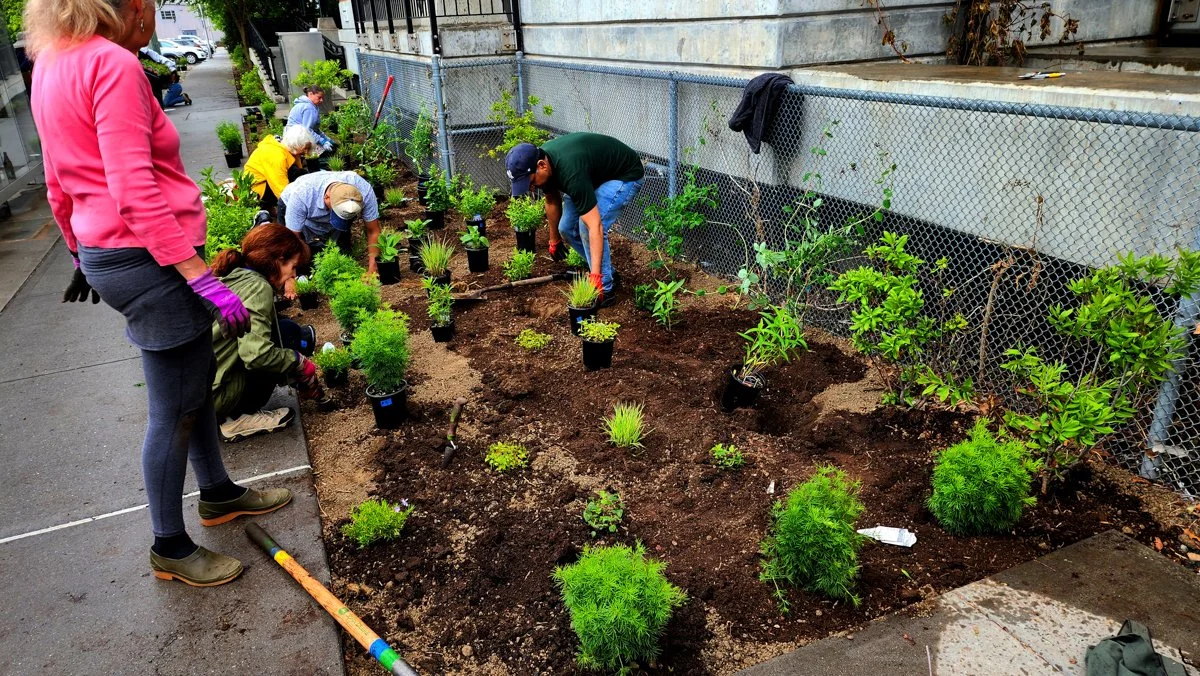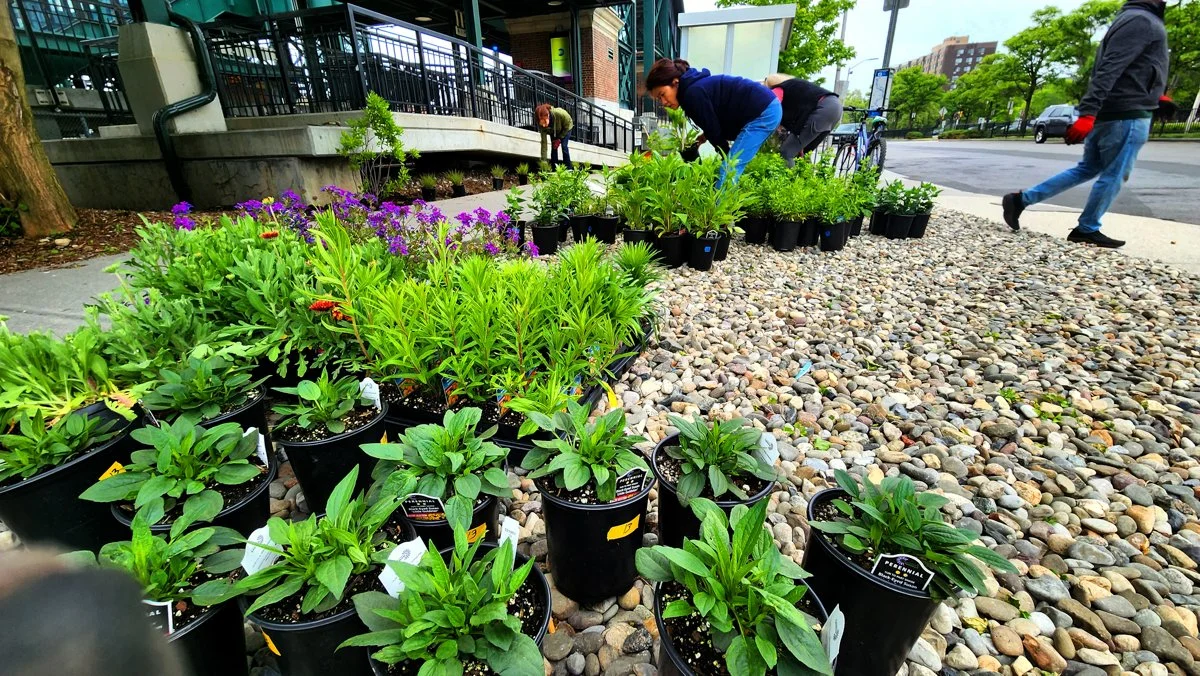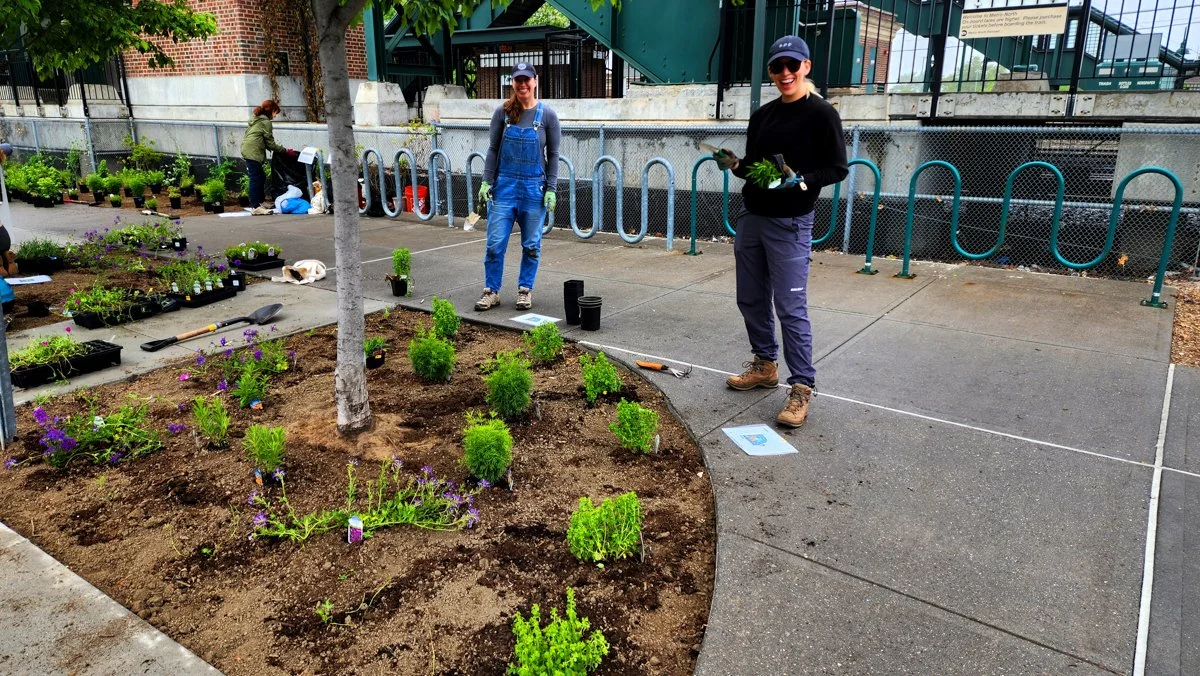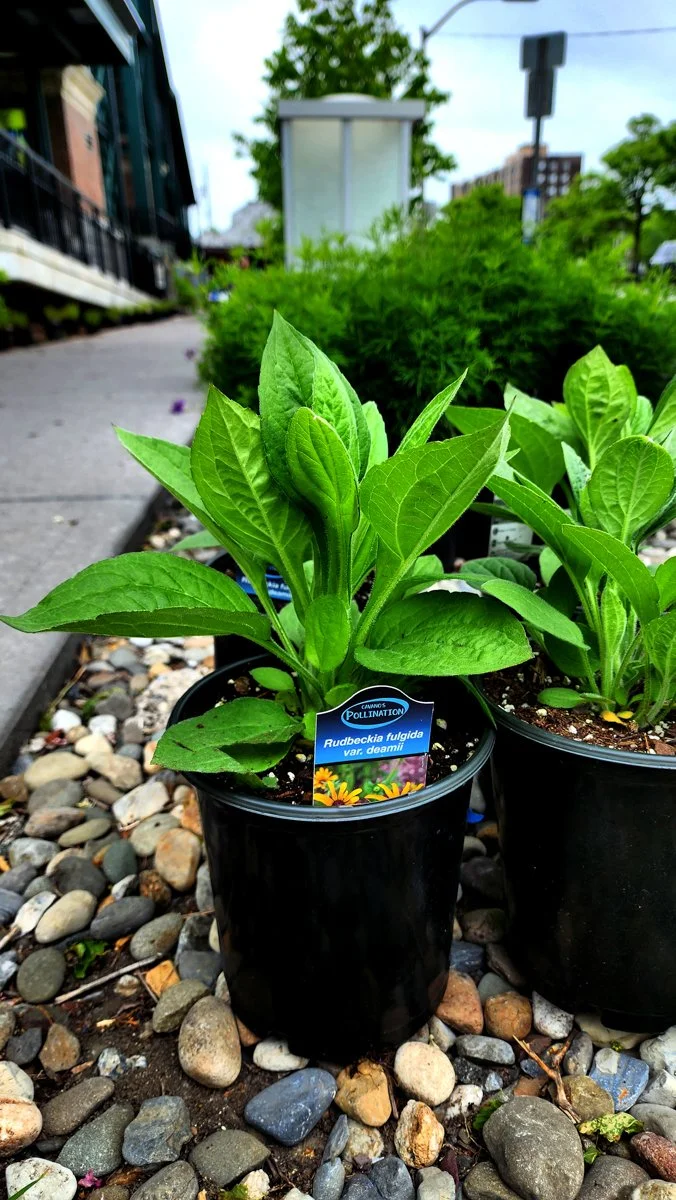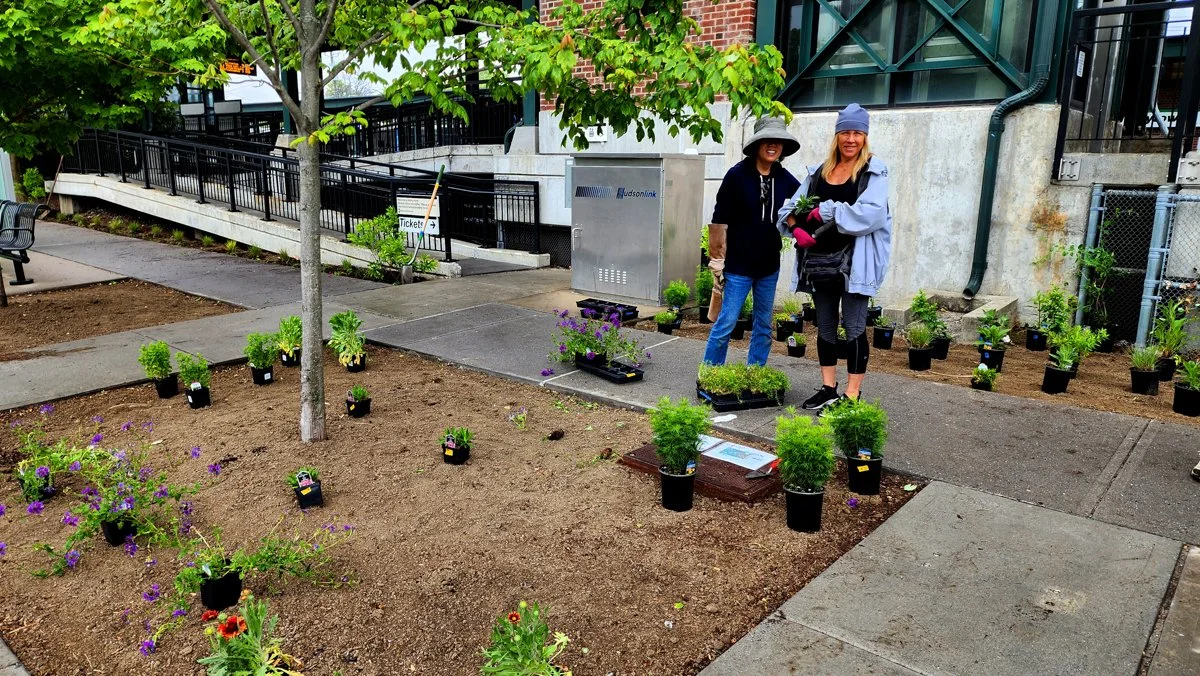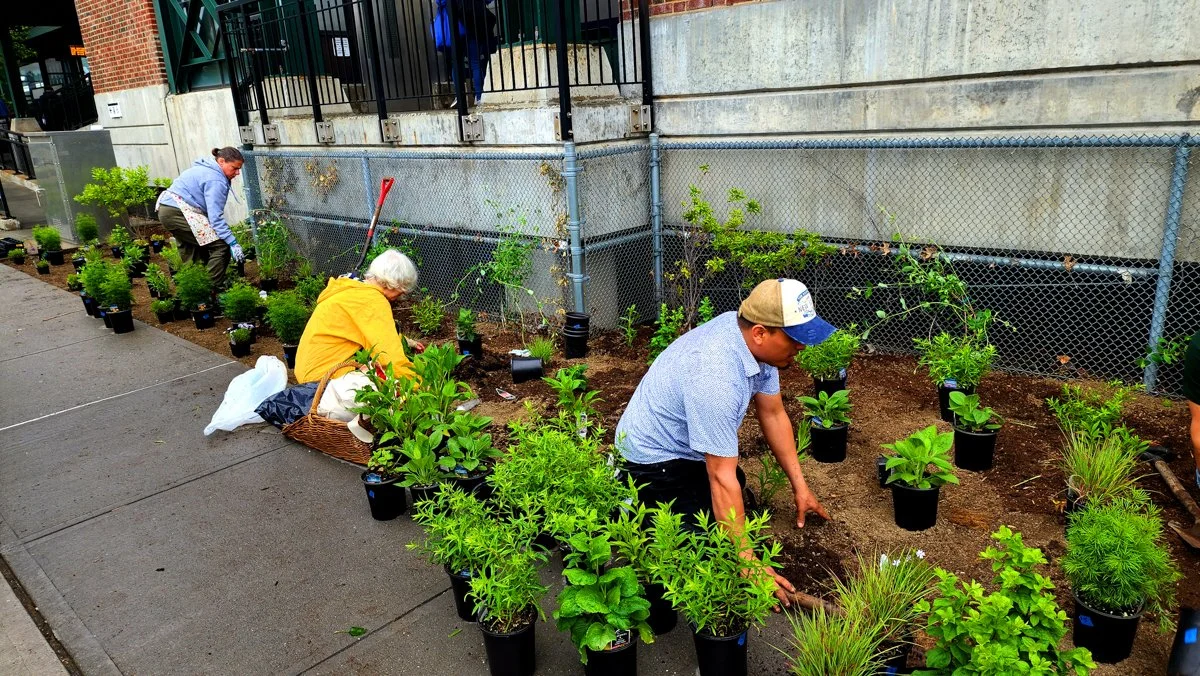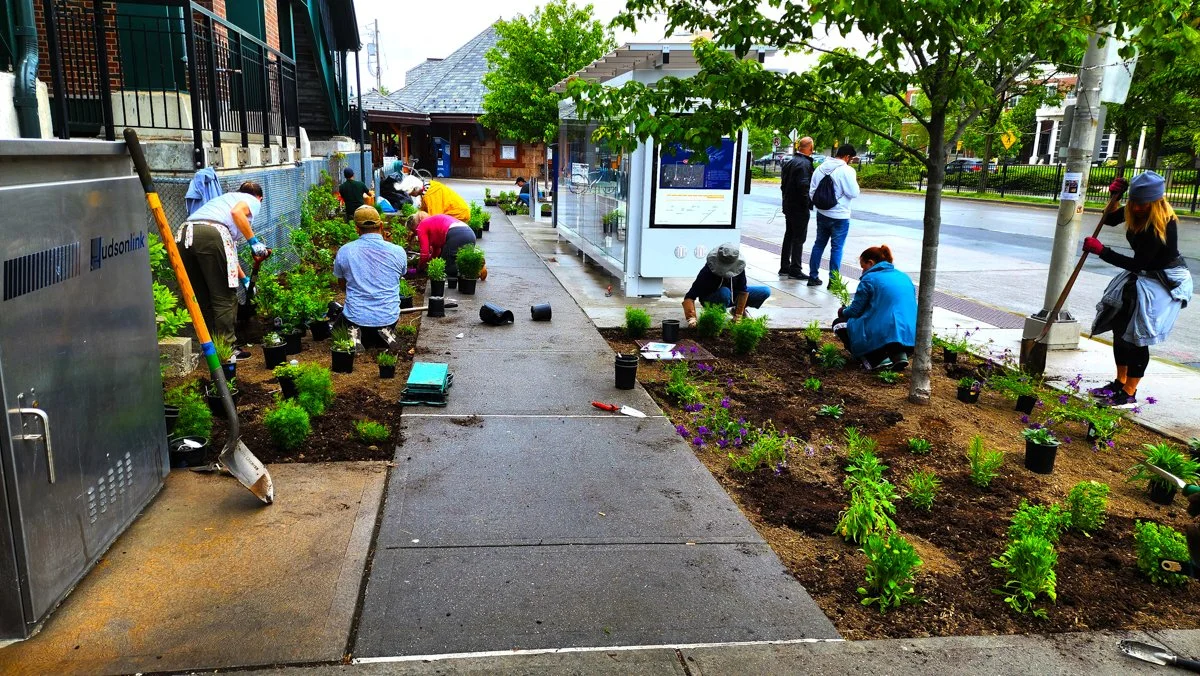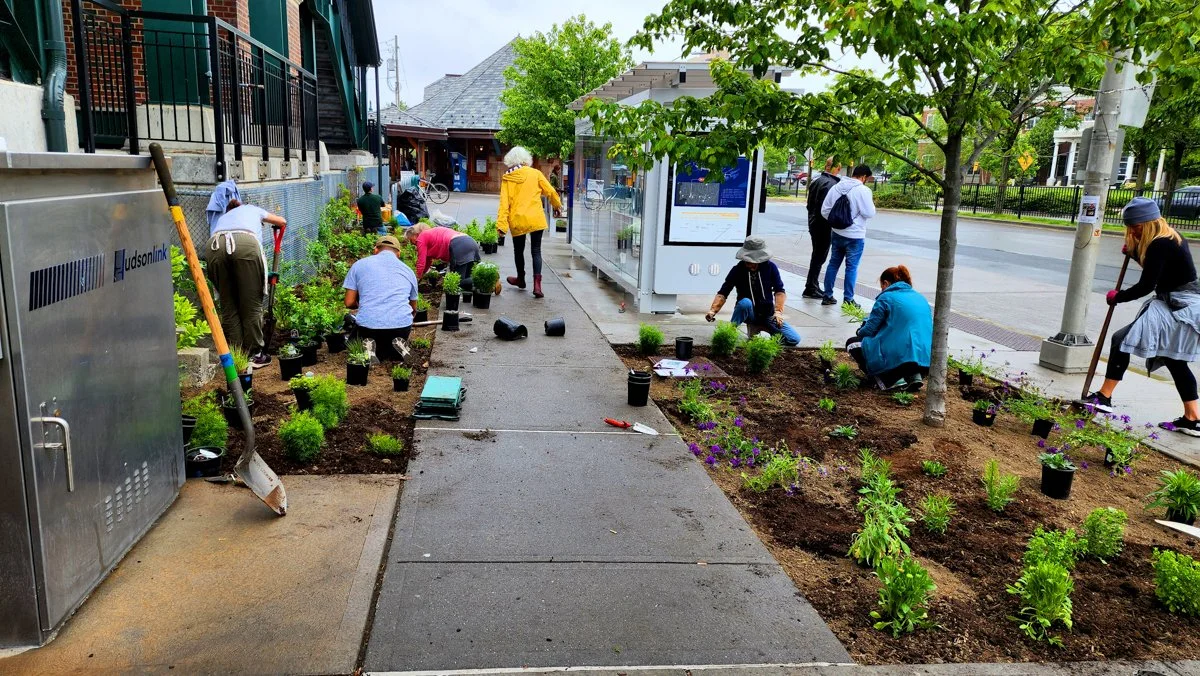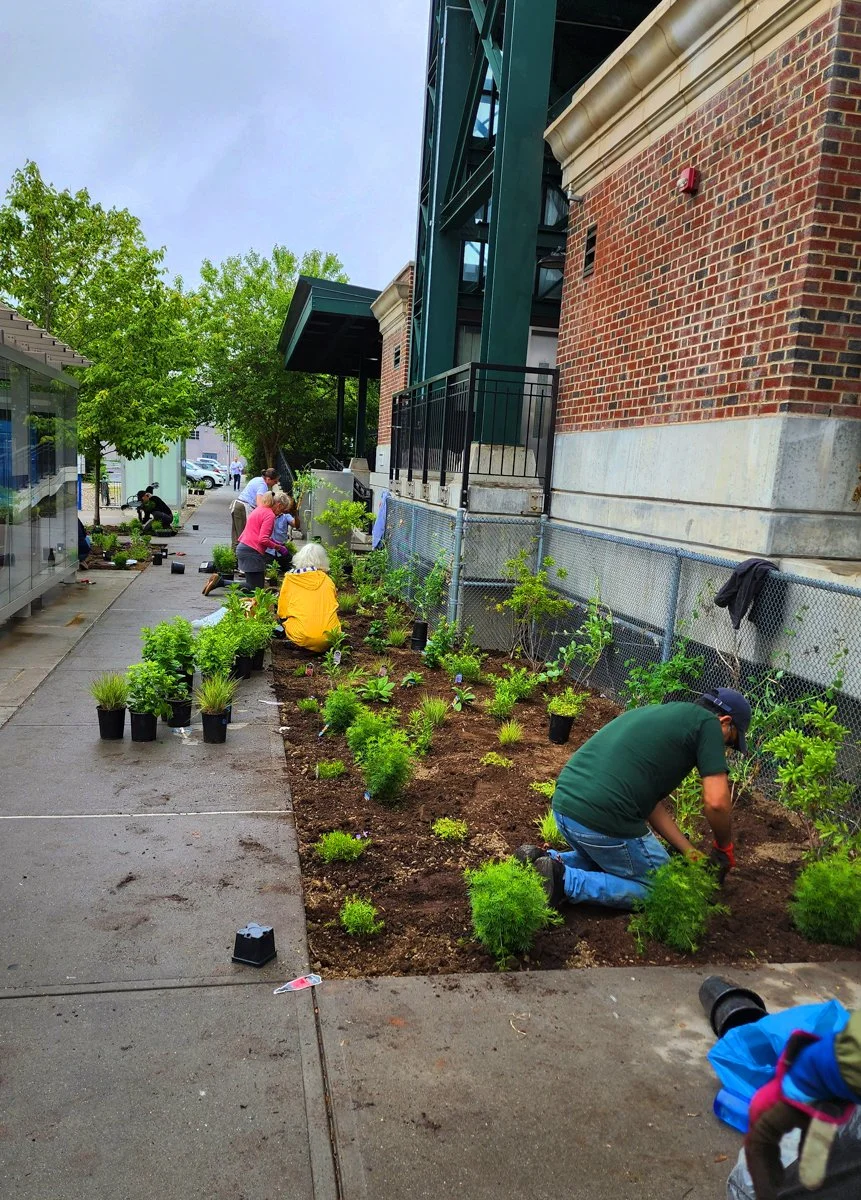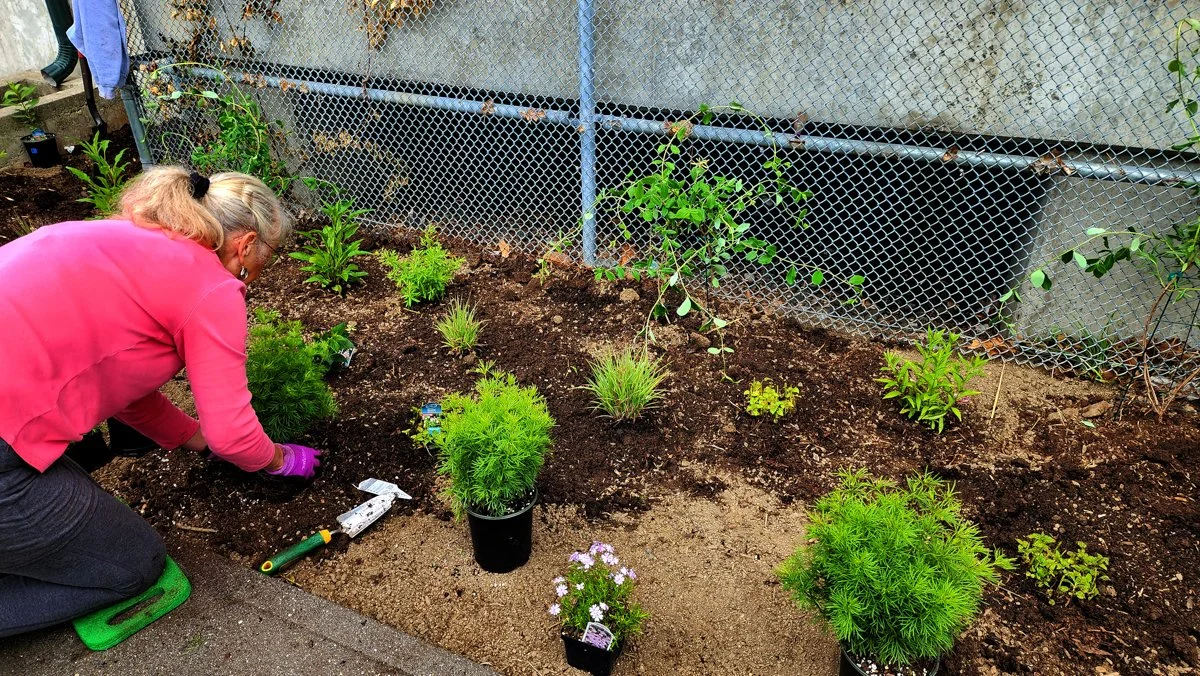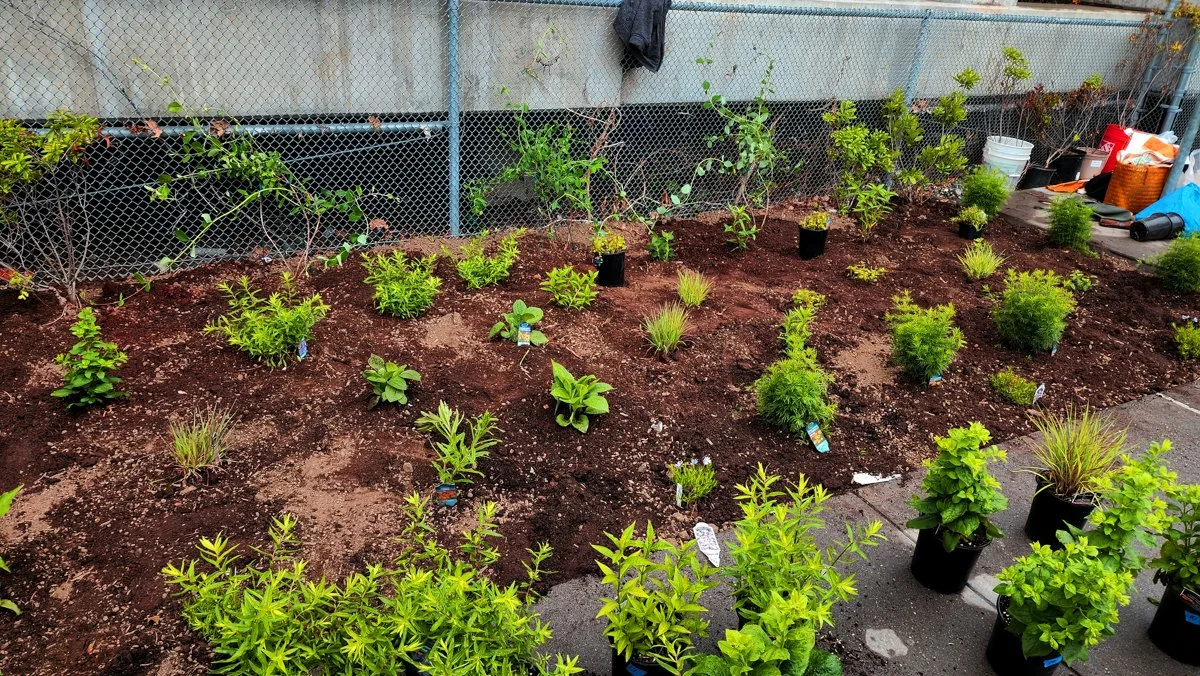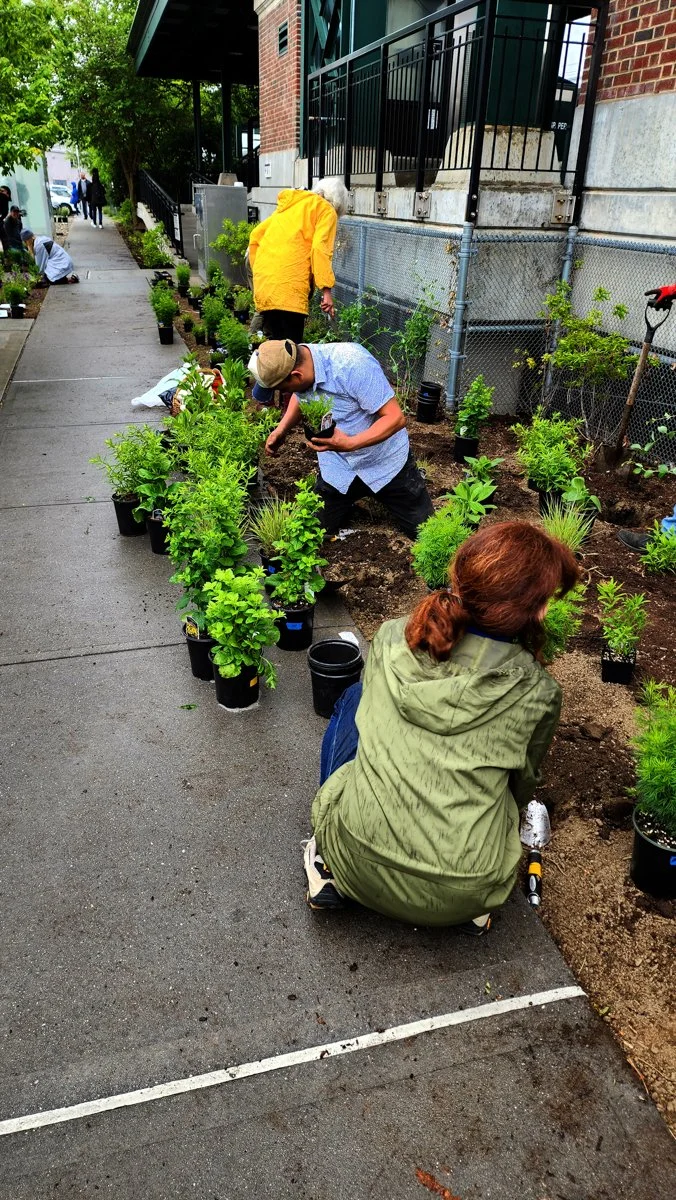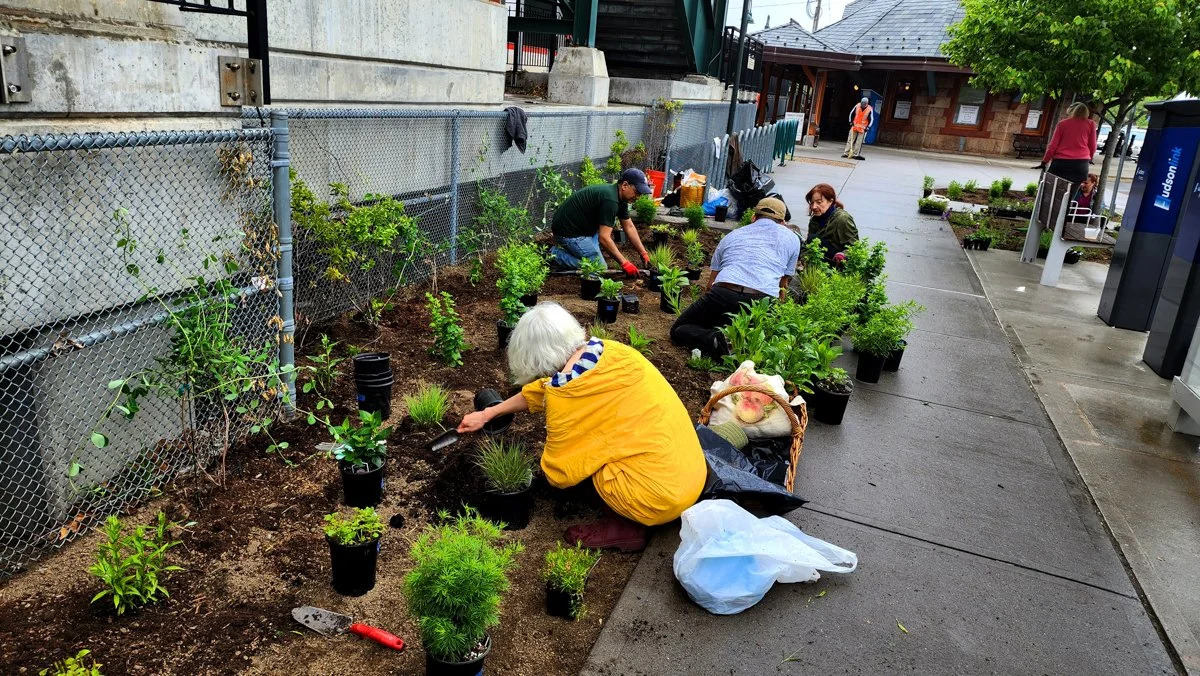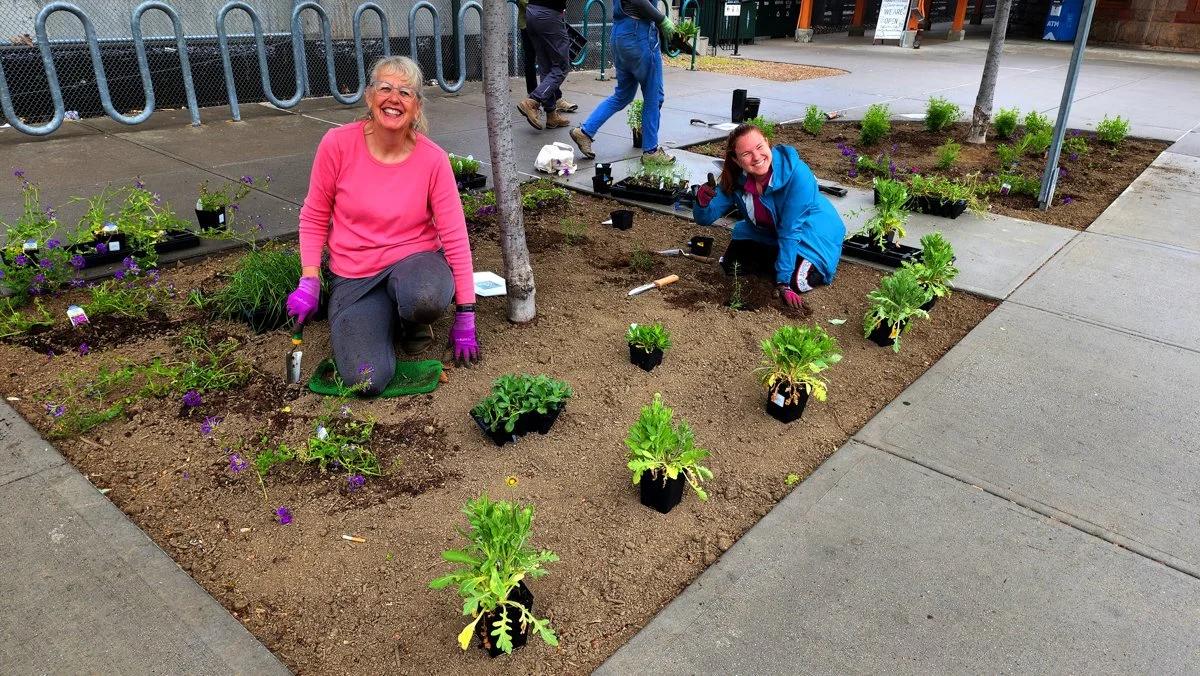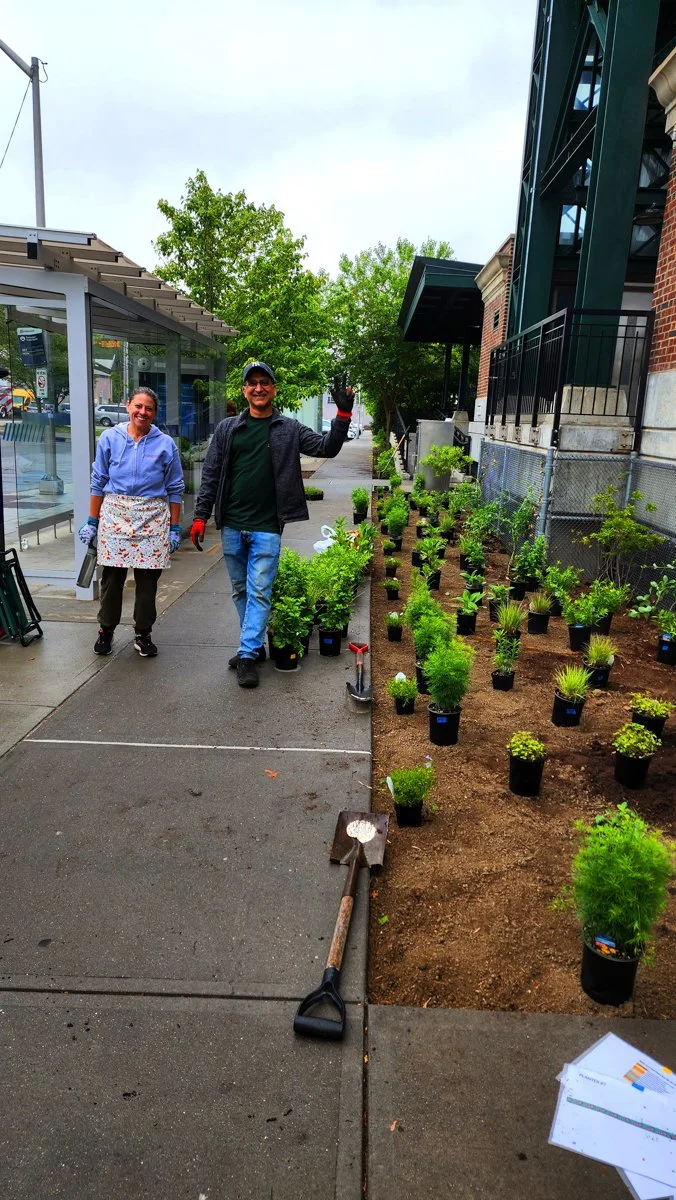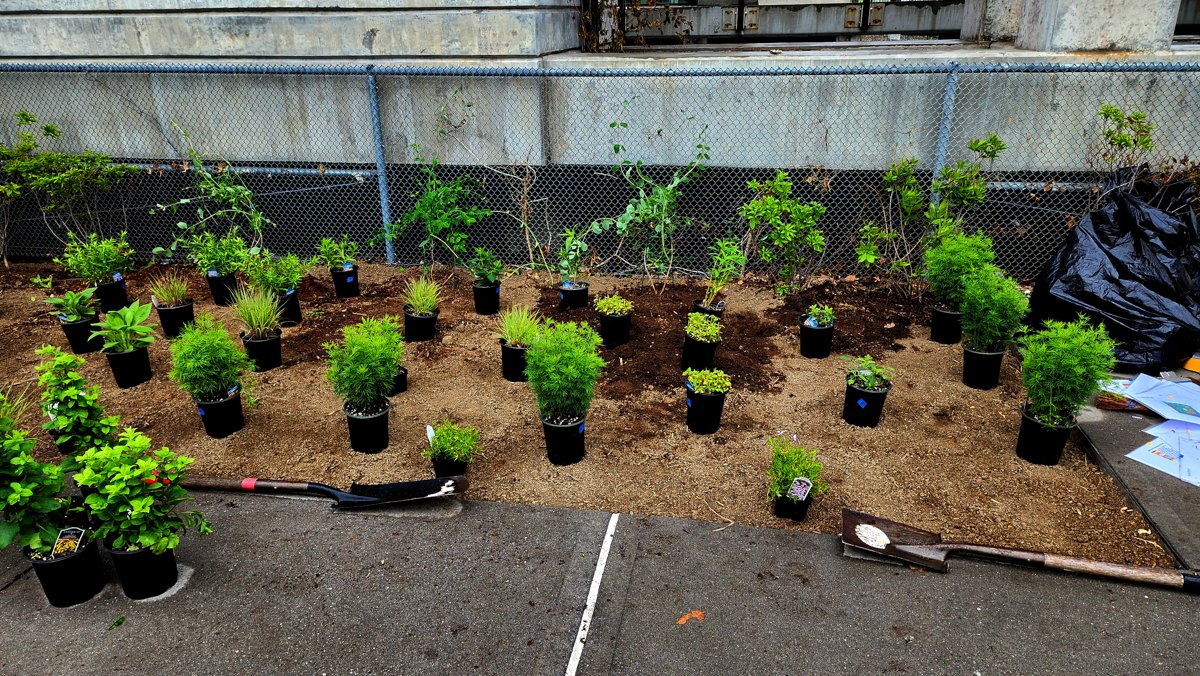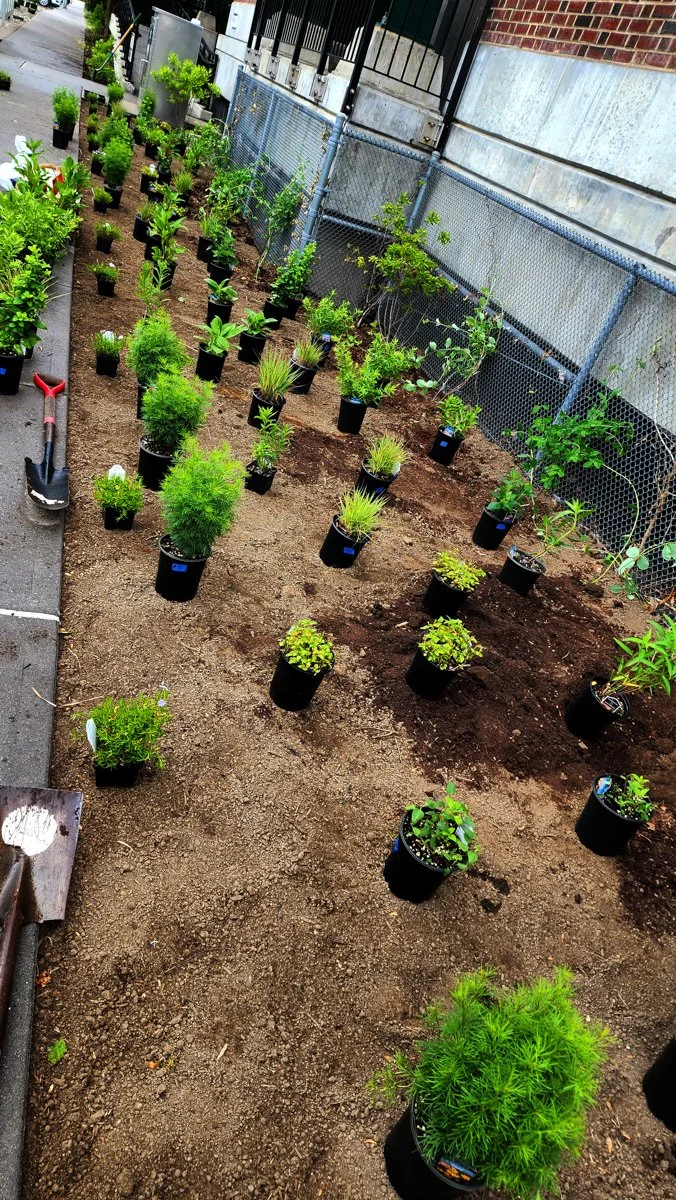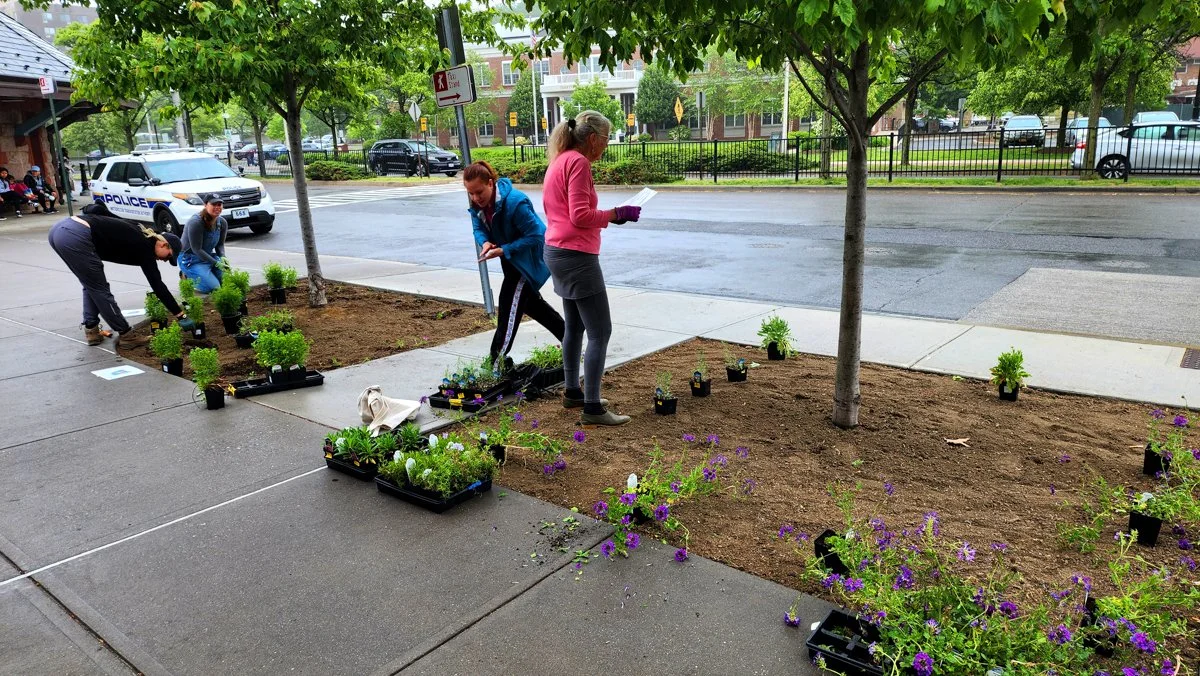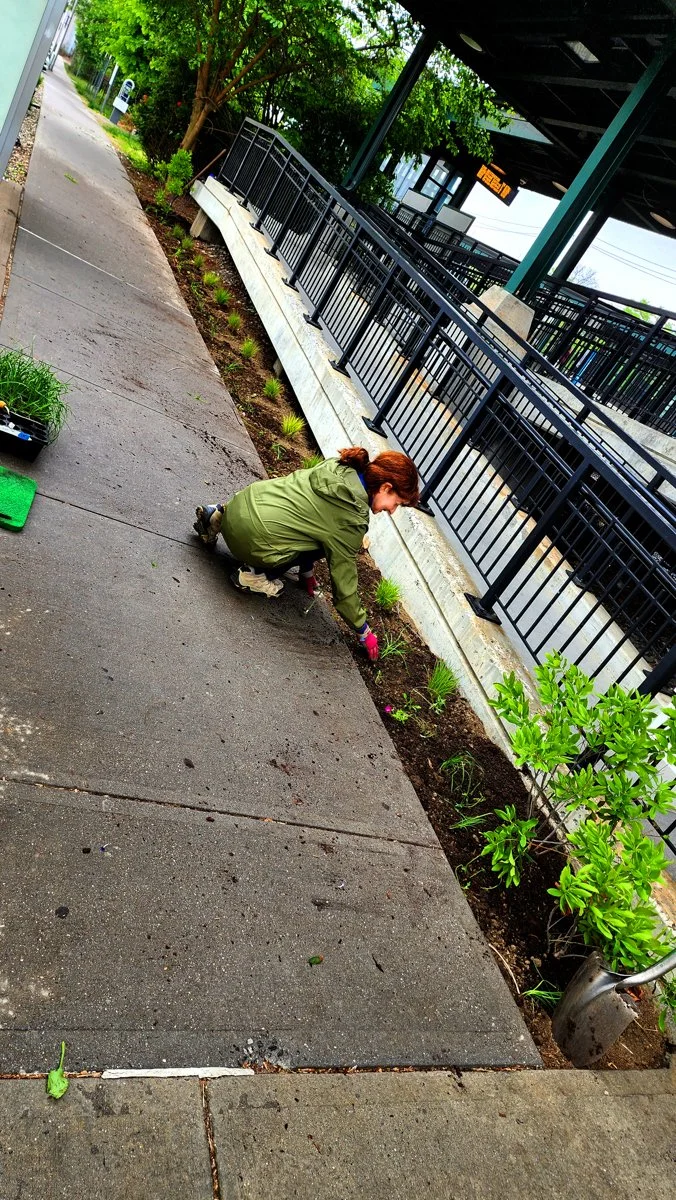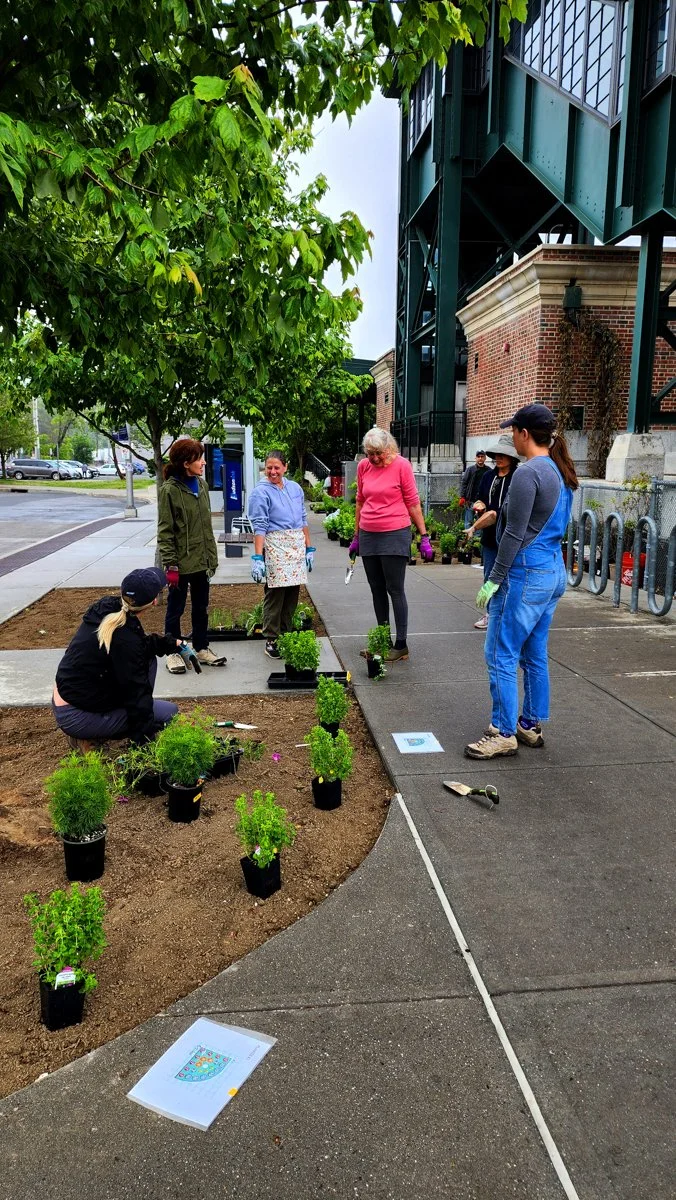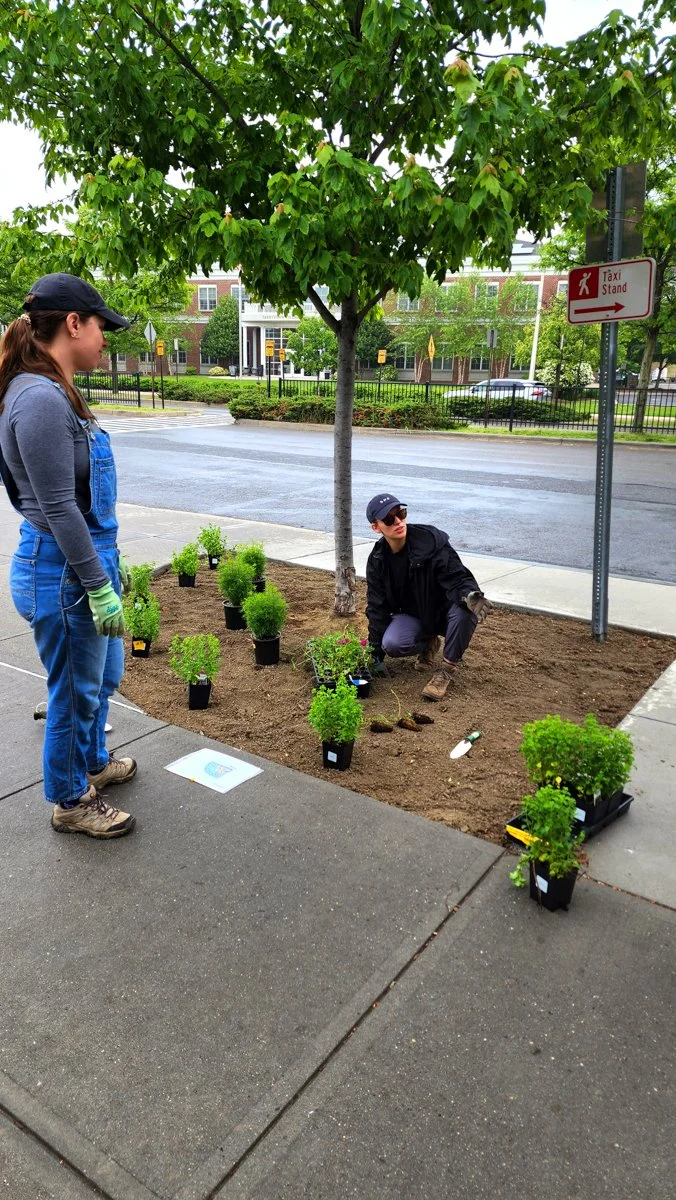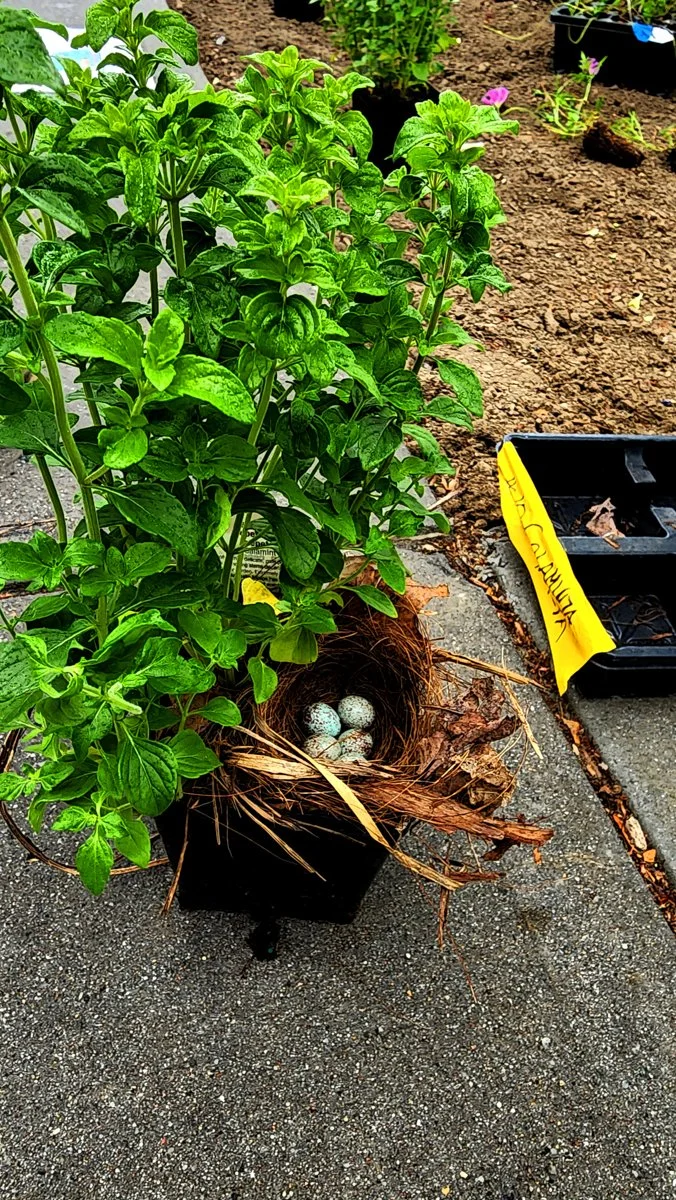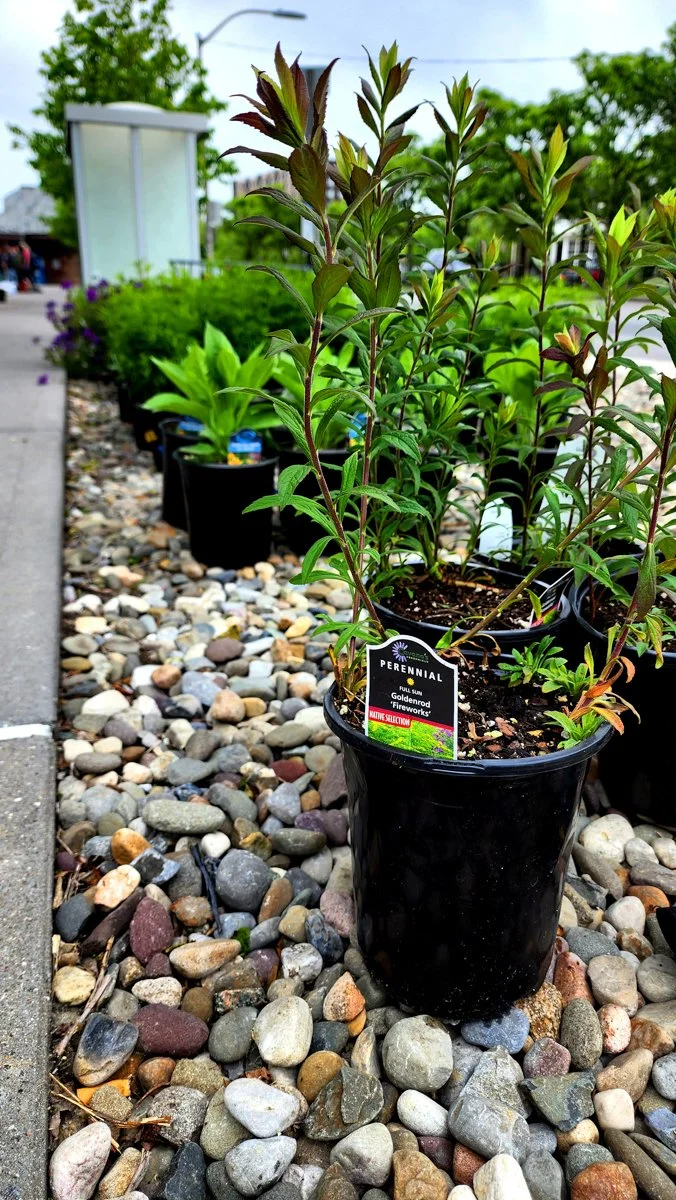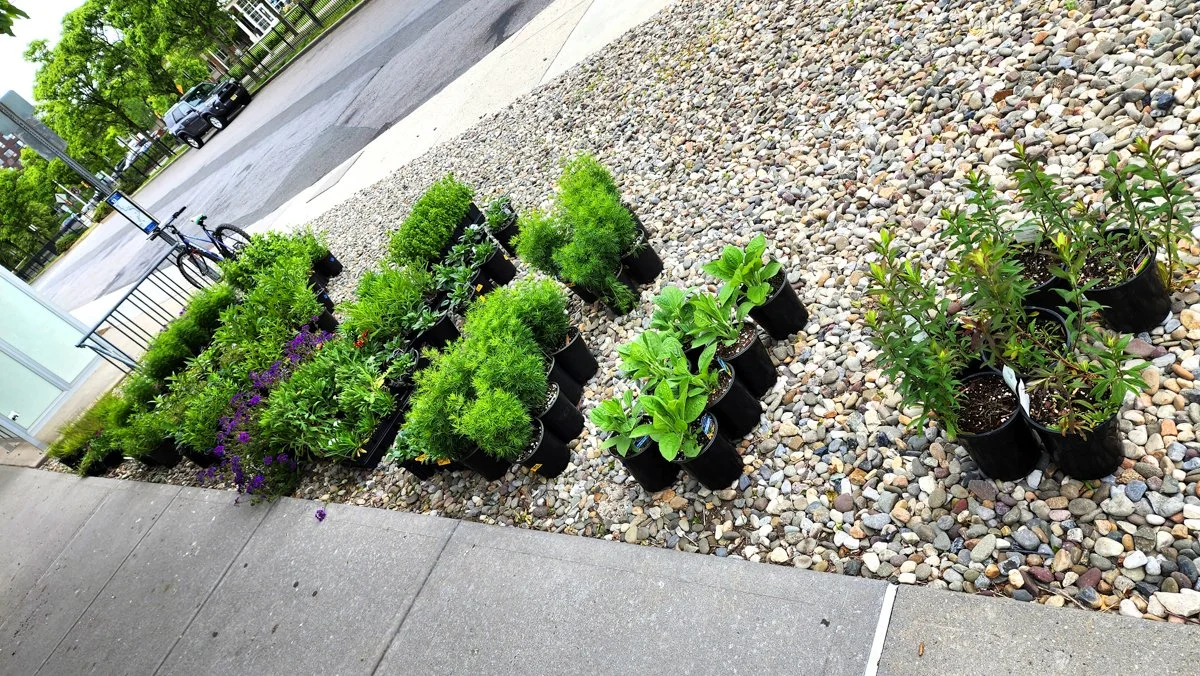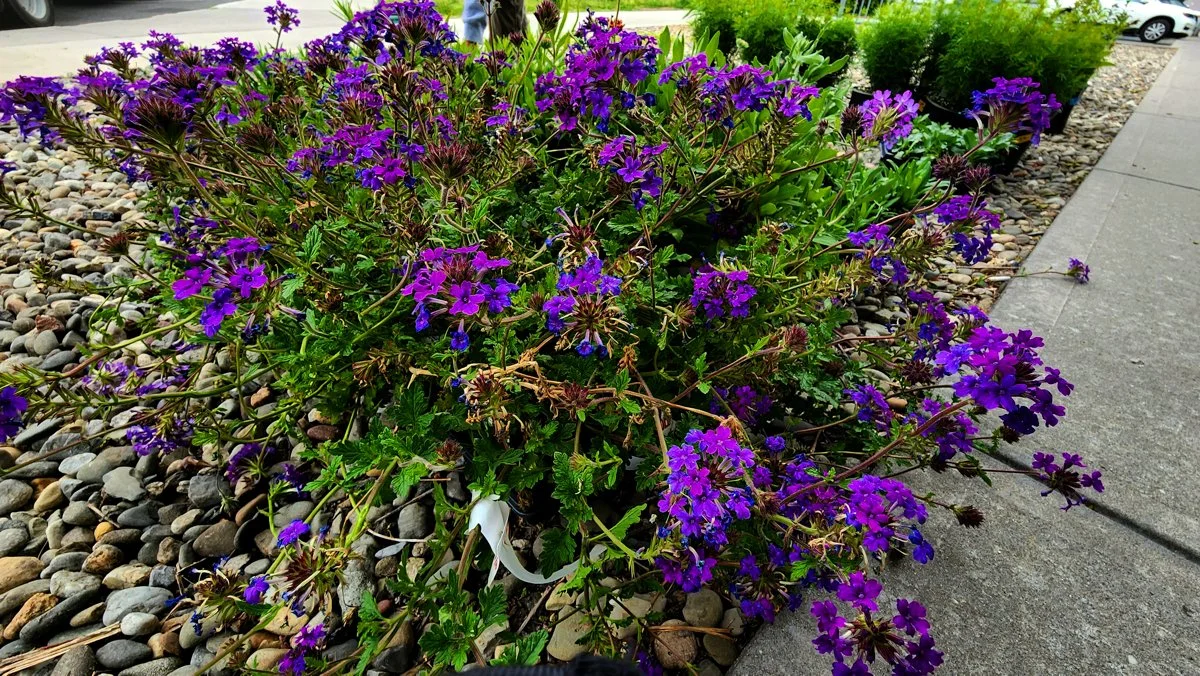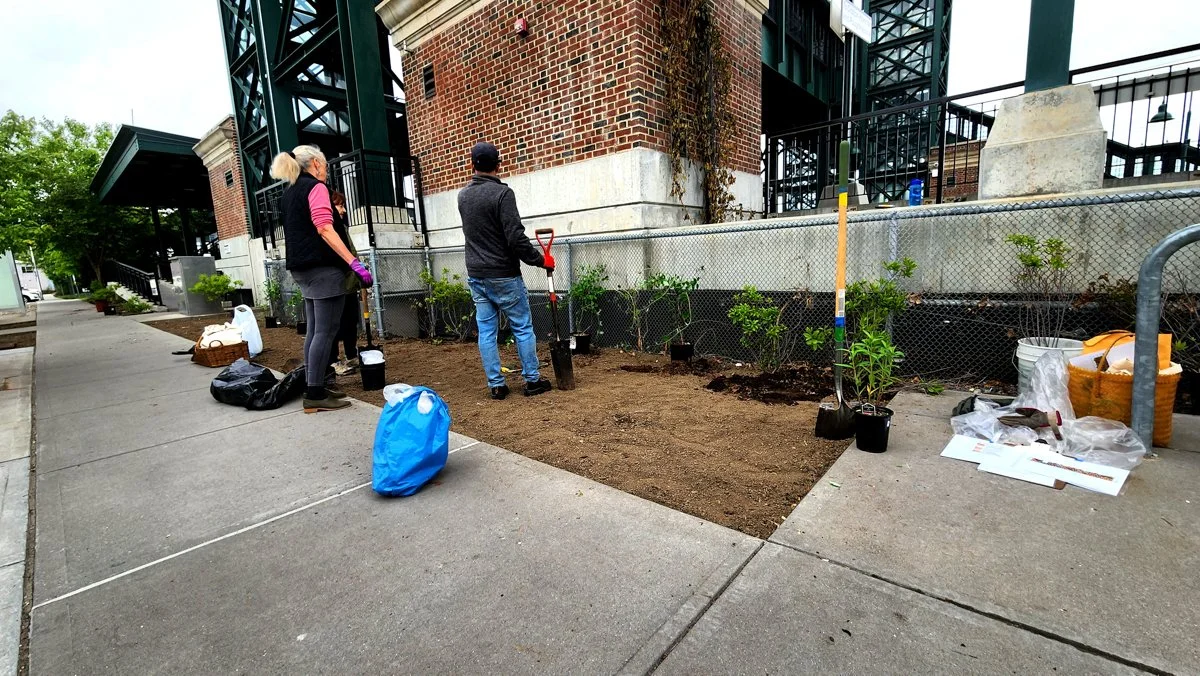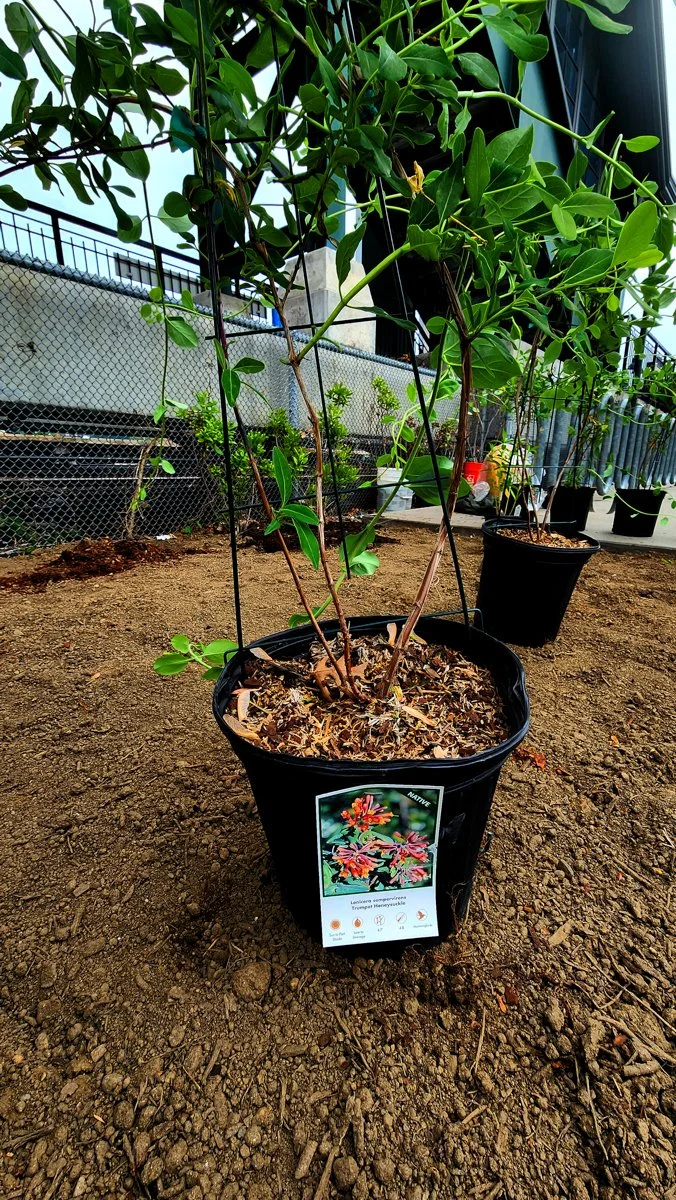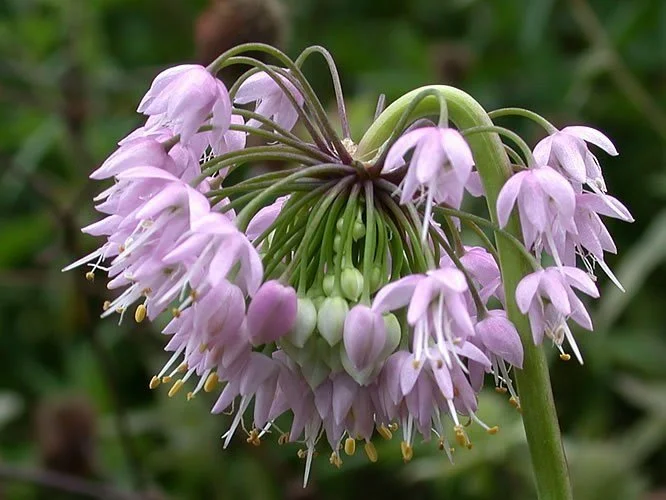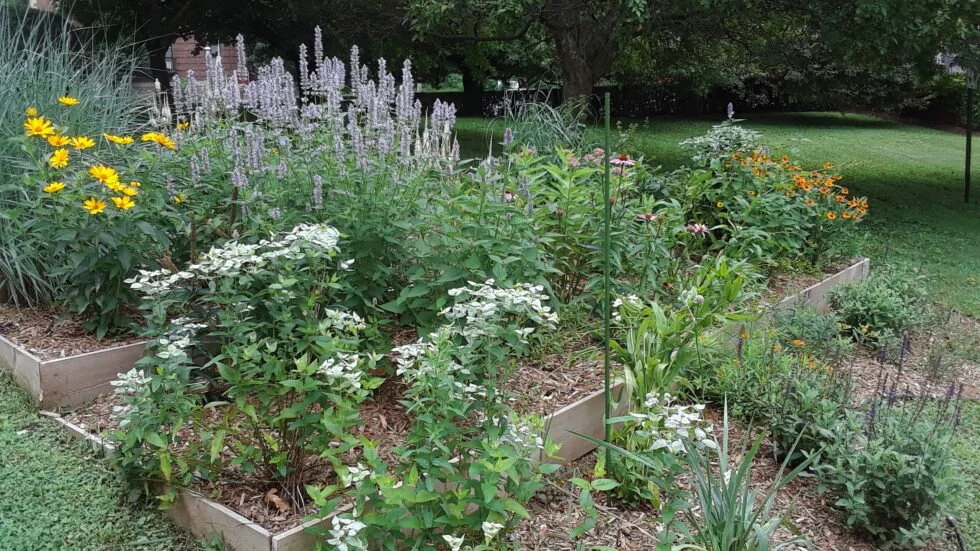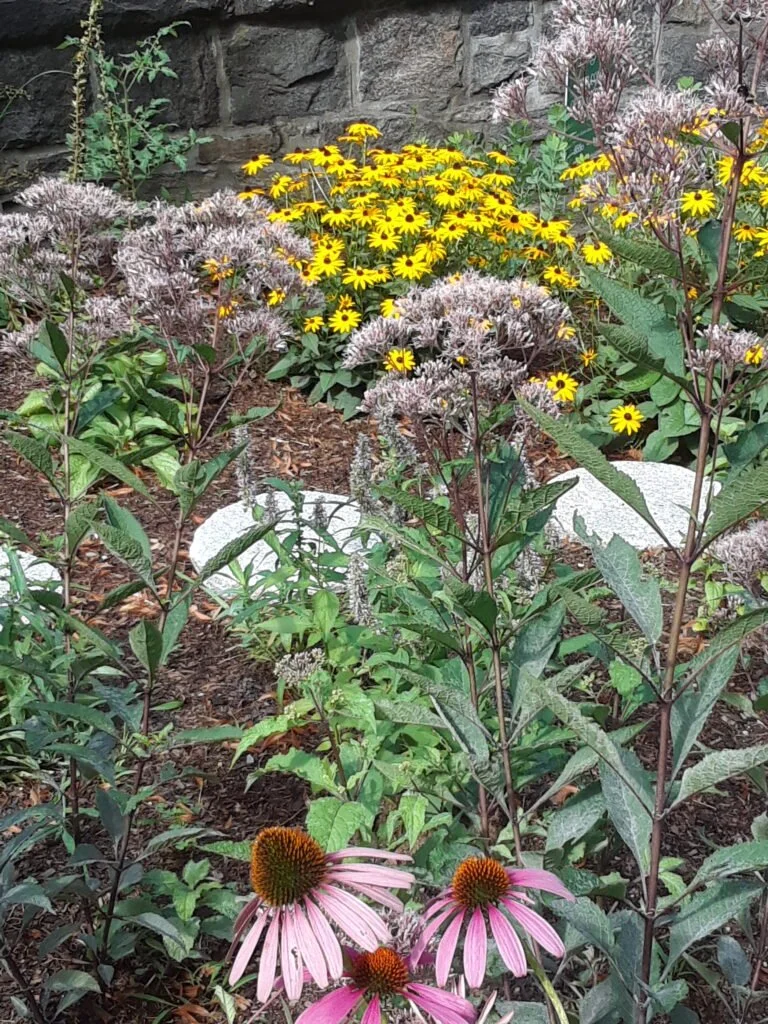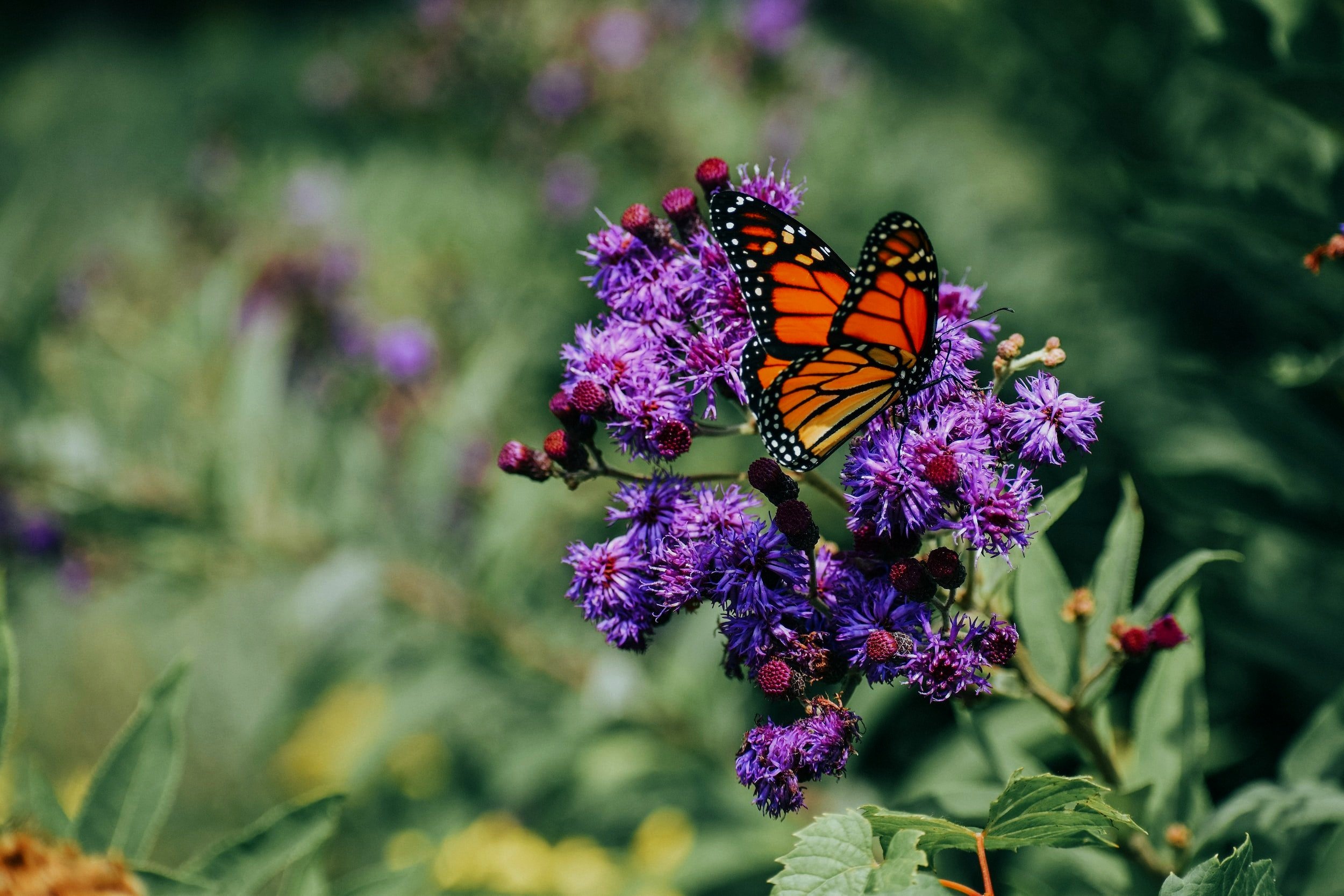
Welcome to the
Tarrytown Station Pollinator Garden
Our garden adds natural beauty with native plants that nurture and shelter threatened pollinators — bees, butterflies, beneficial insects and birds. You can do the same at home, no planting is too small to help. Any garden or planting that is pesticide free and provides food and shelter for wildlife will make a difference. If you don’t have garden space you can plant a planter or install a native shrub or tree!
Try any of these plants
in your garden
Plant Native
Native plants are the linchpins of our ecosystems. They feed the insects who in turn feed the birds who feed other animals and humans — the web of life. Many plants in garden centers are non native and break this food chain. You can do your part by planting at least 70% native plants on your property. You will save time, money and help to reduce greenhouse gasses by planting low maintenance native plants. When shopping ask for neonic free plants. Neonicotinoid pesticides are systemic pesticides that harm pollinators and birds.
Avoid pesticides
You can have a lush lawn and beautiful blooms without using toxic chemicals, saving money and time in the process! Many garden and lawn problems are due to underlying soil conditions which can be remedied by choosing the right plant for the right site and amending soil with organic compost .
Pesticides and herbicides (including “weed and feed “ products) used on lawns and gardens provide a temporary “quick fix" that injures soil in the long term. These chemicals kill beneficial insects that pollinate our plants, prey on garden pests, and decompose organic matter. Synthetic pesticides also kill beneficial living organisms in the soil leading to unhealthy soil and plants.
Did you know that less than 1% of insect species are harmful?
Year-Round Habitat
One of the hardest things for many of us is to do less in our yards, especially in the fall. Unfortunately our urge to “clean” our properties of all leaves and plant material deprives pollinators and birds of their winter homes and food supplies. It also takes away a free source of mulch that nurtures the soil.
Birds, pollinators and other backyard wildlife need winter habitat – leaves, plant stalks, logs etc. to survive. Caterpillars found in fallen leaves feed baby birds in spring. No caterpillars, no baby birds. Here are some guides to help you have a truly beautiful landscape that is vibrant with life throughout the seasons!
Our Gardens
Thanks to the tremendous support of our community — aided by funding through Friends of Warner Library — TEAC volunteers and the Tarrytown Parks and DPW staff have created a variety of vital Pollinator Pathway gardens in the heart of the Village. These gardens provide much needed habitat and sustenance for pollinators and birds.
